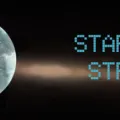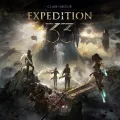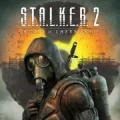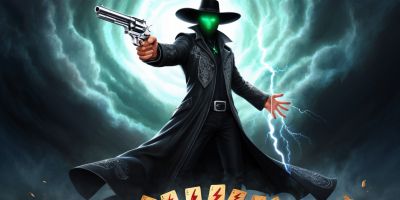Survival Horror on the High Seas: A Gripping Overview of "Still Wakes the Deep"
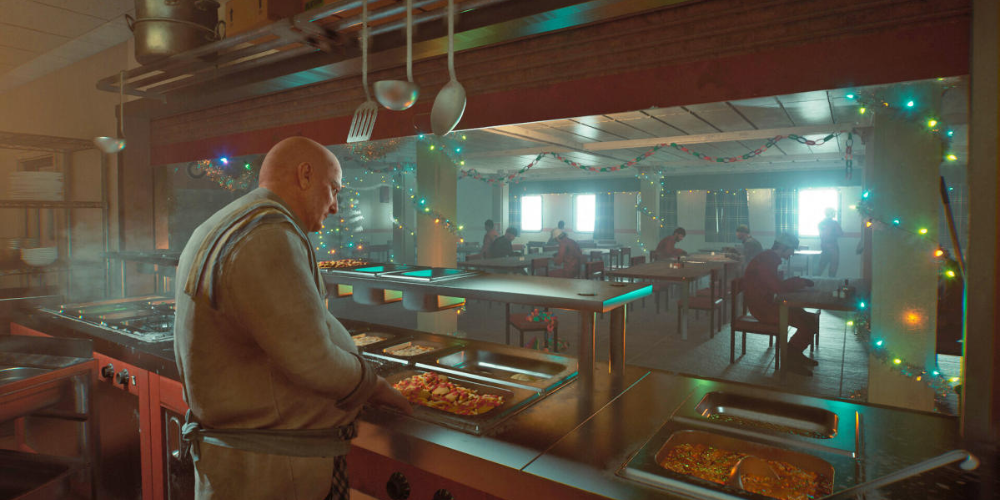
I can just tell you Still Wakes the Deep is basically John Carpenter's The Thing set on an oil rig, and that's 100% of the sale right there. However, I'm contractually obliged to write more than 20 words, so let's expand on that a little...
All the key ideas of the classic 1982 movie are mirrored here - namely, hideous body horror and trying to get away from a nameless terror while being trapped inescapably by the environment around you. This leans a little more into some eldritch and cosmic horror vibes but it's a subtle leaning - the key thing is that, like John Carpenter's film, it's all very flesh-melty as you run through corridors from things with too many arms and mouths, and, eventually, everything's on fire.
Oil's well
But I'm getting ahead of myself. It all starts on a North Sea oil rig in 1975, with you playing as Caz McLeary - a Scottish ex-boxer laying low after punching someone. You've left the wife and kids and literally jumped ship to the rig in the hope that all the legal proceedings of common assault go away while you're there. Obviously, however, that's your biggest problem for barely minutes before things explode and, suddenly, you're fighting for your life to escape a burning metal platform way out to sea.
It doesn't take long to discover the cause of the chaos is something far more complicated than industrial negligence. And it's in these early moments that Still Wakes the Deep does its best work. Before you really understand what's going on, the atmosphere draws out the intrigue and threat of… whatever's out there, beautifully. Things howl in the distance as you pass strange fleshy growths and piles of what used to be people. And might still be, somewhere in the merged piles of meaty tissue full of twitching eyes.
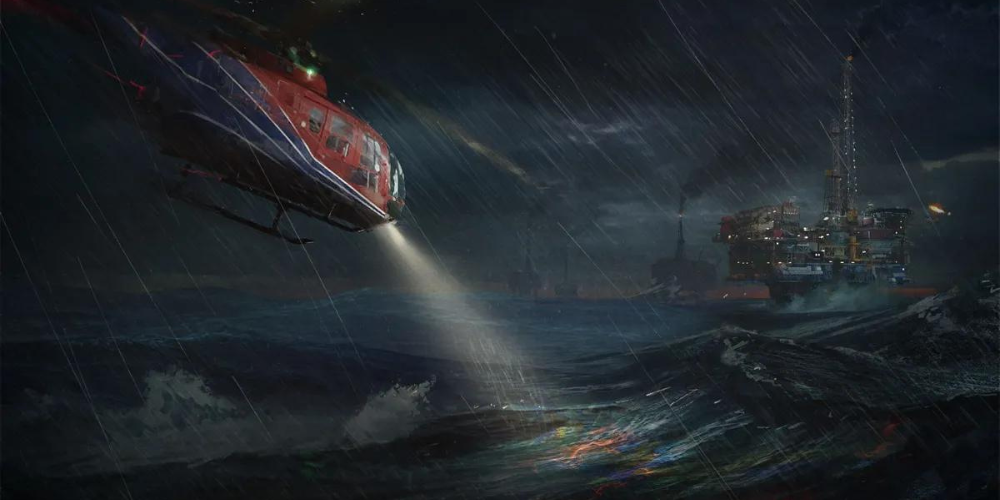
I don't want to give much of anything away here
Because these early moments are just good horror - all promise and threat seeping under your skin. You don't really get to see anything for the first hour, past set dressing and sound ambiance, and it's a great experience for it. It reminds me a lot of early Frictional Games stuff - lots of walking through corridors, just experiencing the world and scaring yourself.
It's a more active game than previous Chinese Room endeavors, with plenty of very traditional stealth encounters as you evade creatures - but it's at its best when you're just wandering around the collapsing rig like it's a 4D theme park attraction.
There's a simple effectiveness to the atmosphere throughout. For example, one of my favorite moments in the whole game is when you creep along a ledge in a collapsed stairwell that opens up below you into hundreds of feet of darkness. There's a paint can halfway across that you're obviously going to knock off, but even knowing, the moment it pinwheels into the darkness below, pinging and spinning off contorted girder fragments and through shafts of light, is beautifully done.
I dunno what the hell's in there…
Other moments are also executed with a fantastic atmosphere: an early monster encounter never reveals what's after you, just teases the presence of something with howls and screams around you - always feeling like you're one corner away from meeting it face to whatever it calls a face. Later, another creature is just seen initially through the fog, a towering shape moving through the haze, very much channeling Stephen King's The Mist.
The early half of the game thrives on this 'what the hell is out there' energy but still works well once you do eventually see plenty of what 'it' is. There's a very simple stealth mechanic where you can grab an array of floor clutter - wrenches, paint cans, hard hats, etc - and throw it into the distance to draw danger away.
It's basic but it's all the game needs - there's no UI or HUD on the screen, so sending monsters to investigate distant clanging corners is done purely on your ability to see it happen. The lack of screen clutter adds to the immersion overall. You can call up an objective waypoint if you need to check, and some basic quick time prompts pop up here and there. But, for the most part, there's little to pull you out of the moment.
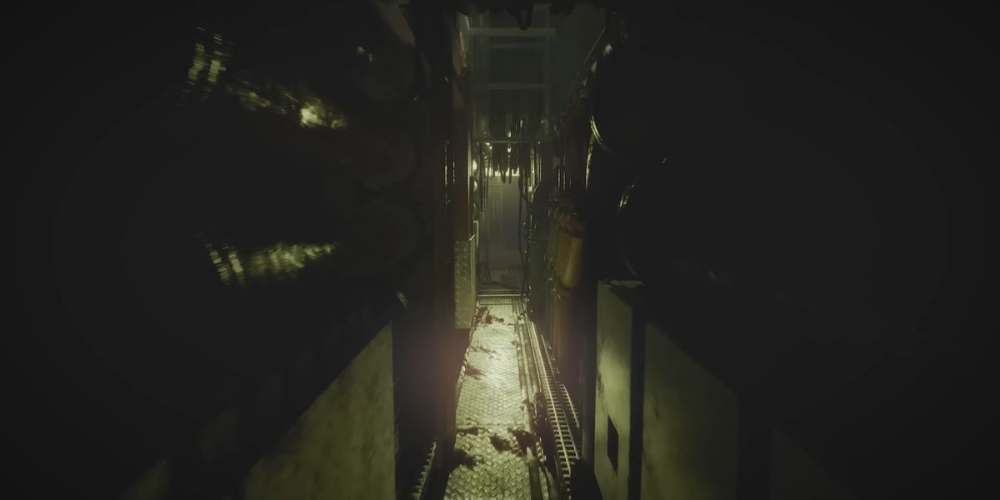
The oil rig and the sea are as much a character here as any creature or survivor
As things get progressively worse, rooms collapse, girders tear through walls and block the way, and the sea wails and whips at you when you're forced outside. The game's spectacle is often at its best when areas have nothing to do with them, leaving you to take in the horrific views and sights around you. Even without monsters, the atmosphere is impeccable as you explore claustrophobic metal rooms or creep carefully past blustery waves.
The decay and collapse of the rig, mirroring that of the survivors trapped on it, is just as much of a journey. It's a good-looking game for what, 90% of the time, resembles a mix of scrap yard and 80s office planning with ground beef rubbed into the gaps. I've also never seen video game water with such a tangibly oily, grimy film over it.
While the overall atmosphere is excellent, I wasn't 100% sold on the performances or back story trying to flesh out the lead character and supporting cast
It did the job well enough, and I more or less cared by the end, but the story felt a little incongruous. I can't entirely put my finger on why, though. It might have been the brisk pace of the game that tried to clip through everything or the way it often seemed like things were squeezed in in a more functional way than a natural flow.
I felt more when McLeary muttered a passing line in mourning on discovering a colleague's body than I did from the extended flashbacks and conversations, trying to make sure I didn't forget about the weans at home. Even some of the creatures had more of an emotional impact on their anguished cries than what often felt like an 'insert obligatory family man narrative later' insert.
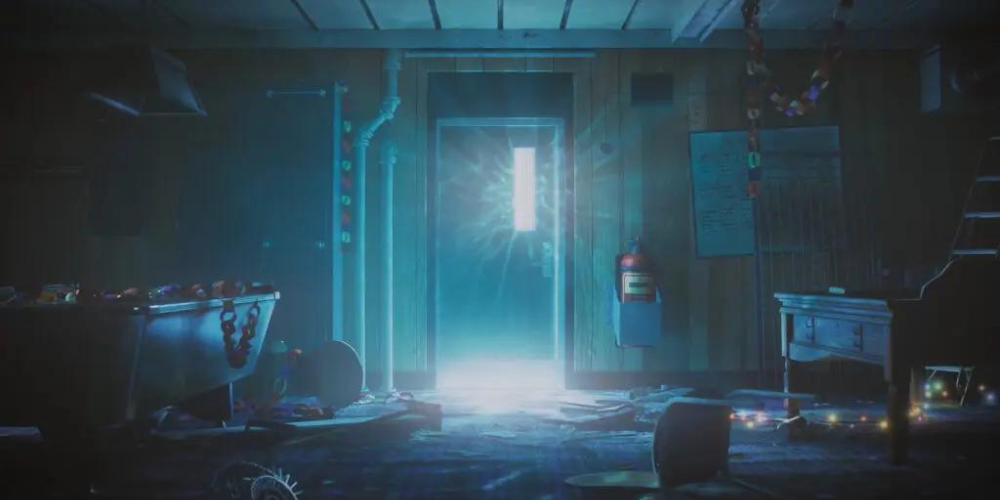
On the matter of pace
It's worth mentioning that I finished the game in barely five hours, and that included taking my time to enjoy the atmosphere and extended looks at all the cool squishy bits. Even then, it was almost done in one go, as when I fired it back up for a second round, I was 20 minutes from the end. Obviously, for free (ish) on Game Pass, that's no problem, but if you're about to drop $35/£30 on PlayStation or Steam, you might want to take note.
It's a totally linear game, and if you follow objectives without dwelling, I could see it being cleared easily closer to four hours. There's a bigger conversation to be had here about sustainable development and game pricing, but it is something to consider. That said, the brevity is the only sticking point on what is otherwise a good game and a moody, ambient piece of short-form horror fiction channeling some great ideas and influences.

